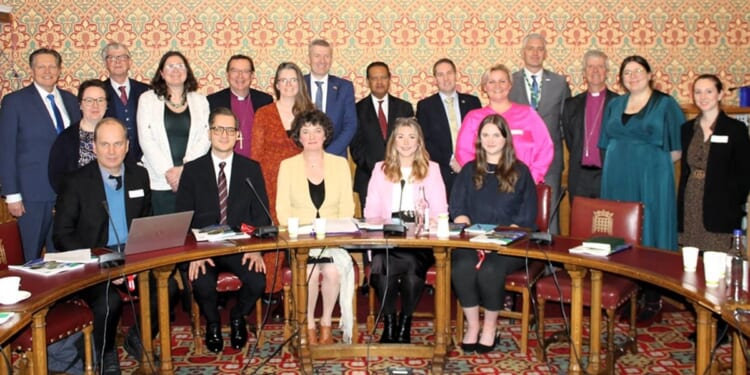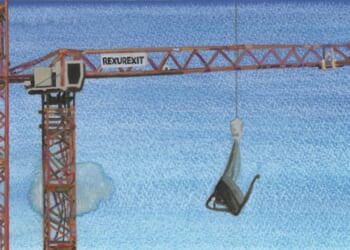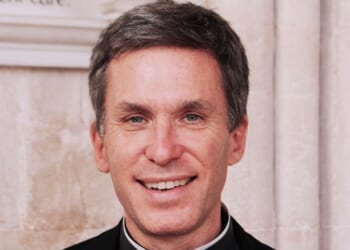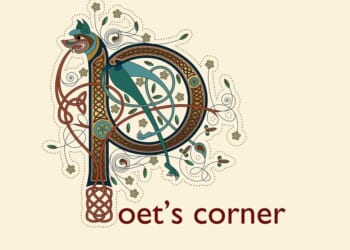SECONDARY school pupils who lack confidence in expressing their own religious beliefs, or openness to hearing those of others, are being helped by new resources exploring “the lived experience of freedom of religion and belief in the UK”, a seminar at the House of Lords this week heard.
The resources include case studies on the effect of recent anti-Israel protests on the Westminster synagogue, and the discrimination faced by the Ahmadiyaa Muslim community in the UK. Developed by Religious Education (RE) teachers working with Professor James Holt, associate professor of RE at the University of Chester, they draw on an 18-month research project (Lived Experiences of Religious Freedom: Organisational challenges in the UK) led by Dr Matyas Bodi of Regents Park College, Oxford, in partnership with the Freedom Declared Foundation.
As well as real-life case studies, the resources include lesson plans to help teachers to develop skills from which students can learn, including “listening well and speaking freely”.
This week, Professor Holt said that he had wanted to develop the resources because, in the UK, we tended to think of freedom of religion and belief as a foreign policy issue. “Dr Bodi’s research shows that there are real-life examples of persecution and harassment here, too,” he said.
“We must help children and young people to be aware of this and to develop the skills to understand the rights and freedoms which our legal frameworks uphold, although our social norms and behaviours do not always follow suit.”
Addressing the seminar in the Lords on Tuesday, at which the resources were launched, Anna Lane, an RE teacher at St Aidan’s C of E High School, in Harrogate, said that these were “really needed”.
“Students often indicate a kind of nervousness around expressing views that they perceive don’t match up with the status quo, don’t match up with what they think is a norm,” she said. “This inhibits a lot. It puts a really low ceiling on the opportunities they take up to develop dialogic skills . . . to disagree with one another, to express their views. And it also puts a low ceiling on their openness to hearing new perspectives.”
The resources aim to “build student understanding of their right to express their beliefs, and of the right of people around them to express different beliefs . . . equipping them with the tools to know what that means in real life conversations in the classroom, in the playground, round the dining room, in society”.
She hoped that they would “give them a bit of a fire in their belly about protecting these rights in society”.
The resources had already helped students to think more intentionally about their own participation in collective worship, she said, rather than “passively partaking . . . without any real thought for their own convictions, or own conscious or sense of personal spiritual integrity”.
Scarlett Hayward, director of learning for RE at Hartford C of E High School, Northwich, said that the resources had helped to develop the confidence of students who “struggle with the dialogic approach. Often because of the increased secularisation that we are witnessing, students often feel that RE or expressing religious beliefs or non religious beliefs is something that is no longer relevant to them. . .
“Students are finding that they can have an opinion, that there is nothing wrong with having an opinion even if they are not someone who identifies with a religious belief. They are able to have a voice and advocate for other people.”
Dr Bodi told the seminar that, despite robust legal protections, “societal disapproval, misunderstanding, or stigma affects how those rights are exercised in practice.” He also highlighted examples of intra-community tensions affecting Messianic Jews and Ahmadiyaa Muslims. The latter had faced opposition from the Muslim Council of Britain when they had attempted to build a new mosque.
Professor Holt said that teachers often struggled to discuss such tensions, and also to engage with the issues raised by anti-Israel protests. They needed “upskilling” in this area.
OFSTED reviews of RE have highlighted deficiencies, including a tendency for teachers to present “overly positive portrayals of religion, which may be linked to the desire for pupils to interact positively with members of religious traditions” (News, 14 May 2021).
A 2013 review found that teachers were failing to take risks, “unwilling to open up enquiry in case pupils asked challenging or controversial questions with which they felt ill-equipped to deal” and “limiting enquiry by directing pupils to a ‘happy end’. Teachers signalled to pupils that they wanted a positive ‘right answer’ about the value of religion, limiting the opportunity to explore more controversial possibilities.”
A Youthscape qualitative study of 16- to 19-year-olds in Luton, No Questions Asked, which encouraged teenagers to talk about their religious beliefs, found: “Although reassured by the interviewers that they could be honest and open, many of the teens interviewed seemed to take great care not to offend them, and to try at all points to be politically correct” (News, 2 March 2018). One, Shahid, said: “I don’t want to disrespect anyone or anything.”
The resources are free to download at: freedomdeclaredfoundation.org/school-resources

















